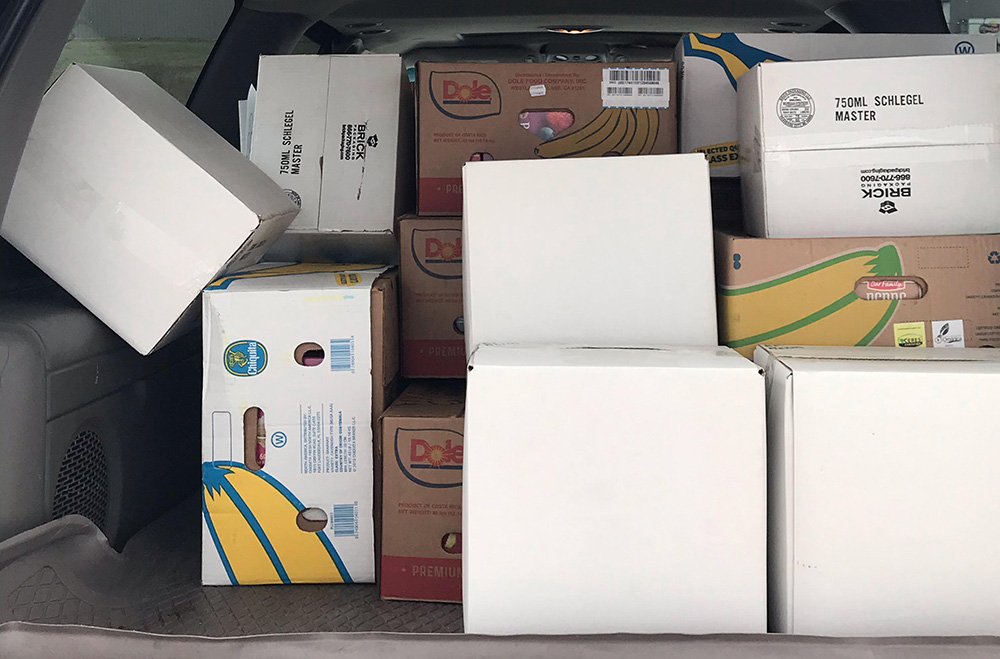For the 42 community school coordinators who are part of the Kent School Services Network, their schools being closed because of COVID-19 hasn’t changed their mission or their focus, just the ways they get their job done.
In some areas, their work has become even more critical as they connect students and families with important resources, including internet access and food.

But they also are dealing with a strong sense of loss.
“It’s hard to know we won’t be back in schools this year,” said Michelle Steffens, a community school coordinator at Meadowlawn Elementary. “Many of the families I work with struggled before the shutdown, and now the building that served as a central location for necessary supports is closed. I am grieving this loss. I saw one of my kindergarten students while delivering food. Witnessing his confusion and sadness when I could not hug him, when I refused to hug him, broke my heart.”
When schools were first closed temporarily, KSSN started to quickly make adjustments, and once the governor ordered schools closed for the remainder of the school year, those adjustments became more significant.
“Switching to working remotely, without access to the schools, became an immediate challenge,” said KSSN executive director Carol Paine-McGovern, “but one that the coordinators rallied around.”
Bridge from School to Community

Under normal circumstances KSSN’s community school coordinators work in a team in their schools, generally with a site team clinician and a State Department of Health and Human Services success coach. The trio partners with the school principal and teachers to make sure students and families have what they need.
They link students and families to community and local resources, and develop relationships with businesses, faith-based institutions and other non-profit partners that can help.
“KSSN is a bridge from the school to the community to help students break down barriers to learning,” said Paine-McGovern of the organization. It was founded in 2006 in eight pilot schools and now partners with 45 schools in 10 school districts and Kent ISD, serving students from pre-K through 12th grade.
In a time of COVID-19, she added, the work has become even more critical.
Sonia Riley agreed. She is Dickinson Academy Cultural Center community school coordinator.
Soon after Gov. Gretchen Whitmer’s April 2 order suspending face-to-face learning at all of the state’s K-12 schools through the end of the school year, Riley started, with her principal’s blessing, hosting Facebook Live time every day with Dickinson families. They tune in and see her reading books, connecting them virtually to the schools.

Connectivity is Crucial
Riley is matter-of-fact about the way she stepped up.
“I didn’t want to make assumptions about what the needs of our families would be,” she said. “I wanted to hear from them, so I started contacting them. I also wanted to make sure that the kids had some encouragement during this time, so I started reading on our Facebook page. Emailing, texting and phone calls became our only lines of communication, but I started sharing food resources and then dropping off food and other essential supplies.”
Steffens echoed her KSSN colleague.
“My day-to-day work schedule within schools was often driven by immediate student and family needs,” she said. “Connecting a child with mental health services or helping parents apply for government benefits. My goal is still to address student and family needs.”
Online access has been a significant need for many of the KSSN community school coordinators.
“Before schools closed, I never received a referral for internet services,” Steffens said. “With schools, libraries and other public institutions shutting their doors, the internet became essential for students to connect to schools and virtual learning and for parents to stay updated on school, health and news information. I have now assisted nine families connect with providers offering free internet to low-income households.”
‘We have realized we need each other more than we thought.’ — Sonia Riley, KSSN community school coordinator
Other coordinators have worked with community partners to secure laptops for students without technology at home. Thanks to a $5,000 grant from the Heart of West Michigan United Way’s COVID-19 fund, Paine-McGovern and several coordinators were able to make a shopping trip for much needed personal hygiene products.
Riley said she and Steffens and their fellow community school coordinators have become critical infrastructure workers.
“We continue to navigate these uncharted waters,” she said, “but we also no longer take those casual encounters, meetings, human contact for granted anymore. We have realized we need each other more than we thought. I am happy to be able to continue to serve my families and those in need during this time.”










